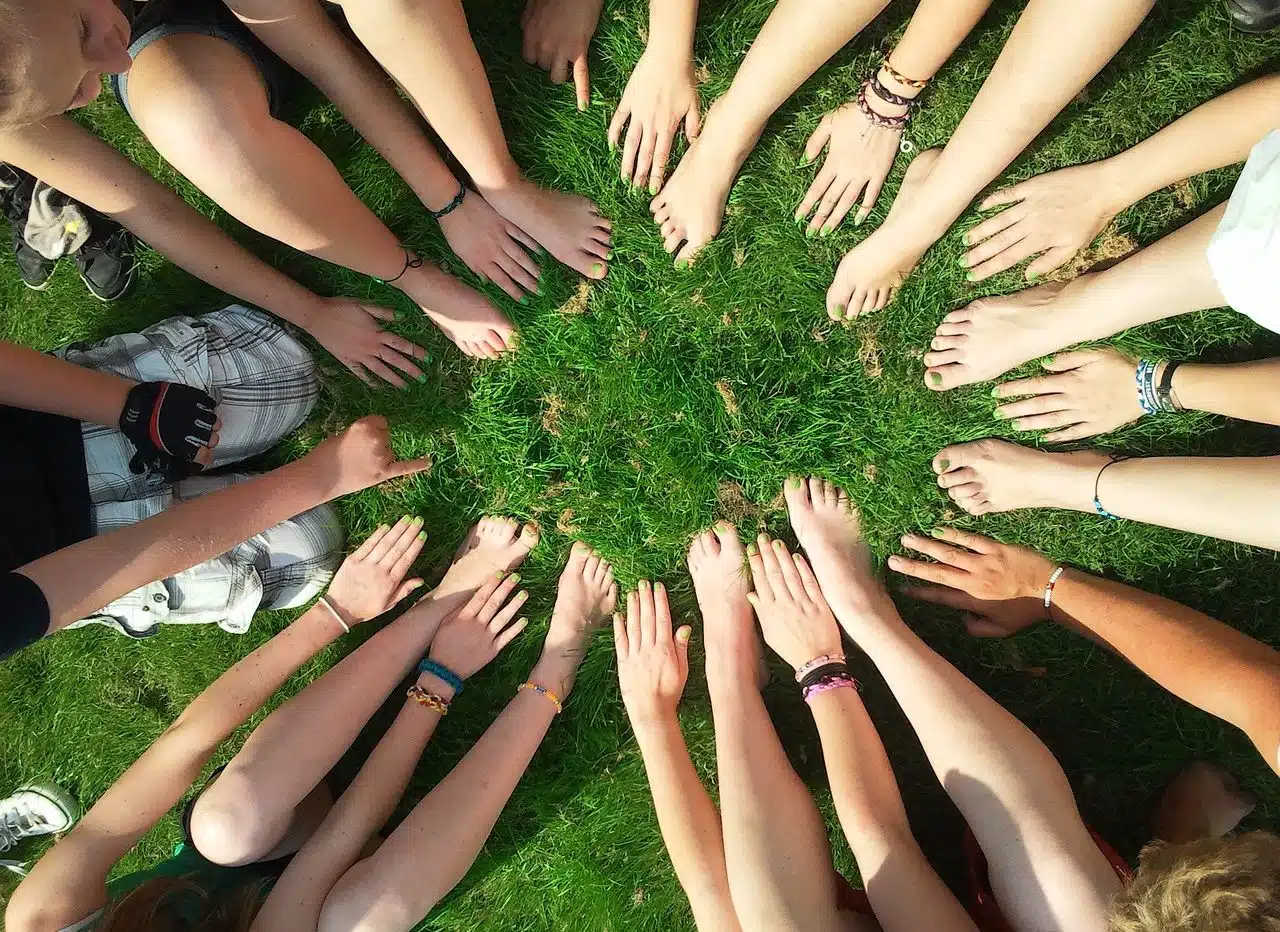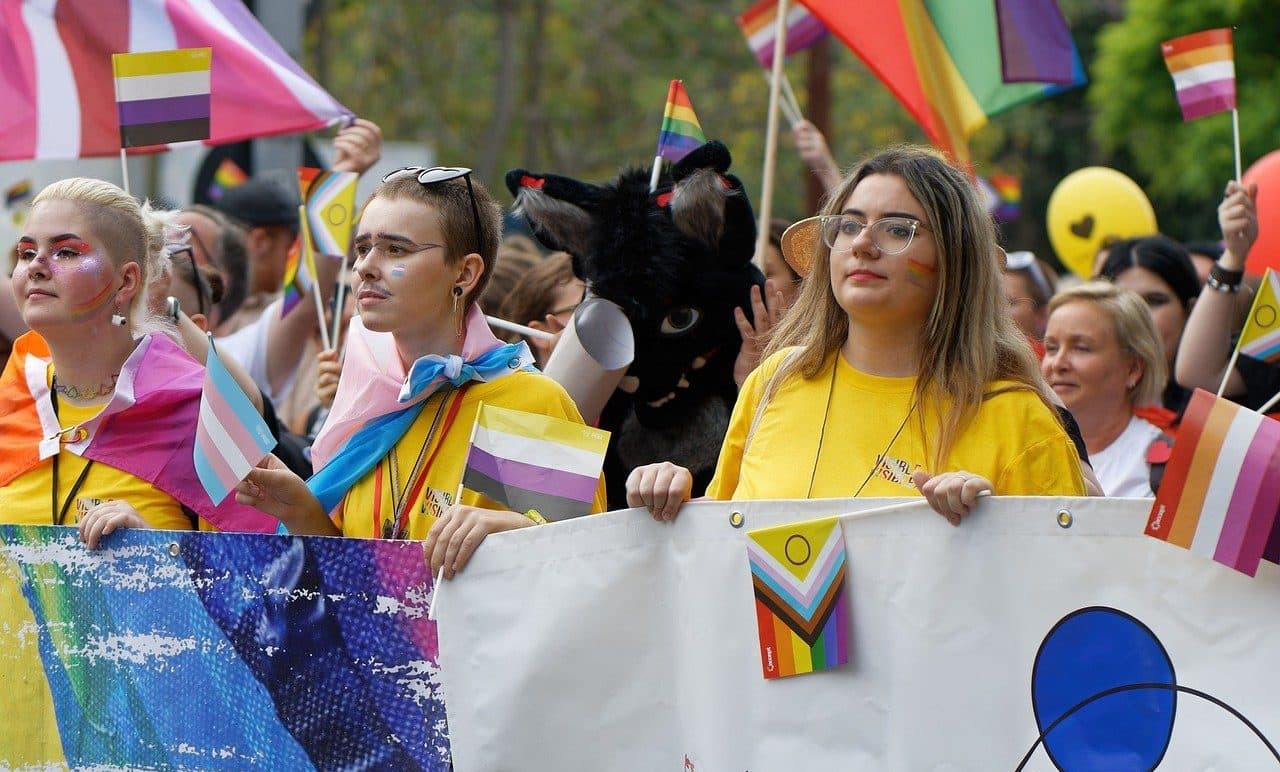
We can join together and form groups voluntarily thanks to freedom of association.
Freedom of association is the right of people to join and form groups, organizations or associations voluntarily and without unjustified interference. It includes the freedom to create and participate in unions, political parties, non-governmental organizations, clubs and other groups. Freedom of association is fundamental to democracy and allows people to collaborate, express their common interests and defend their collective rights.
Examples of freedom of association
Unions
Workers have the right to form and join unions to defend their labor rights and bargain collectively with employers.
political parties
People can form and join political parties to participate in the democratic process and promote their ideas and policies.
Non-governmental organizations (NGOs)
Individuals and groups can create and join NGOs to address various social, environmental, humanitarian and human rights causes.
Clubs and cultural associations
People have the right to form and participate in clubs and associations that promote cultural, sports, recreational or educational activities, such as reading clubs, sports teams, or neighborhood associations.
Social movements
Citizens can organize into social movements to promote social change, such as civil rights, feminist, or environmental movements.
religious groups
People can associate to practice and promote their faith and beliefs, forming congregations, temples, churches, or any other organization using their religious freedom.

Academic freedom guarantees our right to discuss any topic without restriction or interference.
Freedoms
The following freedoms, related to the freedom of association , are fundamental for democracy and the protection of individual and collective rights.
Academic freedom
It is the right of academics, students and university staff to research, teach and debate without undue interference or restrictions. This freedom allows the creation and dissemination of knowledge freely and autonomously, protecting people from retaliation for their research or ideas.
Academic freedom
It is the right of teachers to teach and express their ideas and knowledge in the academic field without censorship or restrictions. This freedom ensures that educators can present diverse points of view and foster a critical and open learning environment.
Business freedom
It is the right of people to create, direct and manage their own businesses or companies without unjustified interference from the government. This freedom includes the ability to undertake business, compete in the market, and make business decisions independently.
Freedom of expression
It is the right of people to express their opinions, ideas and beliefs without fear of reprisals or censorship. This freedom is fundamental for the functioning of a democratic society and allows for diversity of thoughts and opinions.
Freedom of thought
It is the right of people to have, hold and change their own beliefs and opinions without coercion. This freedom is essential for individual autonomy and the formation of personal ideas and values.
Freedom of the press
It is the right of the media to investigate, report and publish news and information without censorship or government interference. This freedom is crucial for an informed society and the supervision of public and private powers.
Freedom of assembly
It is the right of people to peacefully assemble to discuss, protest or celebrate any matter of common interest. This freedom allows the organization of demonstrations, marches and public meetings, and is vital for civic participation and the collective expression of ideas and demands.
Legislation
Association legislation must be studied at the national and international level. In the first case, it varies from one country to another, but generally includes regulations that establish the rights and responsibilities of associations, as well as the procedures for their formation, registration and operation, and can occur through a civil society, for example .
At the international level, several instruments and organizations protect the right of association and establish guidelines for its regulation:
- Universal Declaration of Human Rights (UDHR);
- International Covenant on Civil and Political Rights (ICCPR);
- European Convention on Human Rights (ECHR).
Legal restrictions
Although freedom of association is a fundamental right, it may be subject to certain legal restrictions, which generally must meet criteria of necessity and proportionality in a democratic society. Some of these restrictions include:
- registration and supervision;
- accountability;
- lawful purposes;
- financial regulation;
- limitations in specific contexts;
- prohibition of illegal associations.
Movements
resistance movements
Organized efforts by community or national groups to oppose an oppressive regime, foreign occupation, or unjust policies and actions. They often involve various forms of community mobilization, such as demonstrations, boycotts, strikes, and acts of civil disobedience.
student movements
Initiatives organized by students to promote changes in the educational system, defend student rights and advocate for social justice. They often use tactics such as protests, university occupations, and awareness campaigns.
Feminist movements
Collective efforts to fight for gender equality and women's rights. They seek to eradicate discrimination and gender violence through education, legal defense and public campaigns.
Anti-war movements
They advocate the resolution of conflicts without the use of violence and promote peace and demilitarization. These movements use community mobilization to organize marches, vigils, and awareness campaigns that seek to influence public opinion and government policies.
Social movements
Collective efforts that seek to promote or resist changes in society in relation to various issues, such as civil rights, economic justice, the environment, among others. These movements use different strategies to involve society and put pressure on decision makers.

The defense of equality and diversity is supported by freedom of association.
Impact on activism and gender diversity
Freedom of association is fundamental to activism and the defense of human rights, allowing people to organize into support groups to promote the right to equality and protect LGBTQ+ rights . Social media has transformed the way these groups mobilize, making it easier to disseminate information, organize events, and recruit members.
The use of social networks has allowed the rapid organization of public demonstrations, which are essential to make the struggles for gender diversity visible and demand legislative and social changes. These demonstrations not only give voice to the demands of marginalized communities, but also promote community empowerment, strengthening cohesion and solidarity among its members.
Freedom of association, through activism and the use of digital platforms, has been crucial to advancing the acceptance and rights of LGBTQ+ people, promoting a more inclusive and equitable environment .
